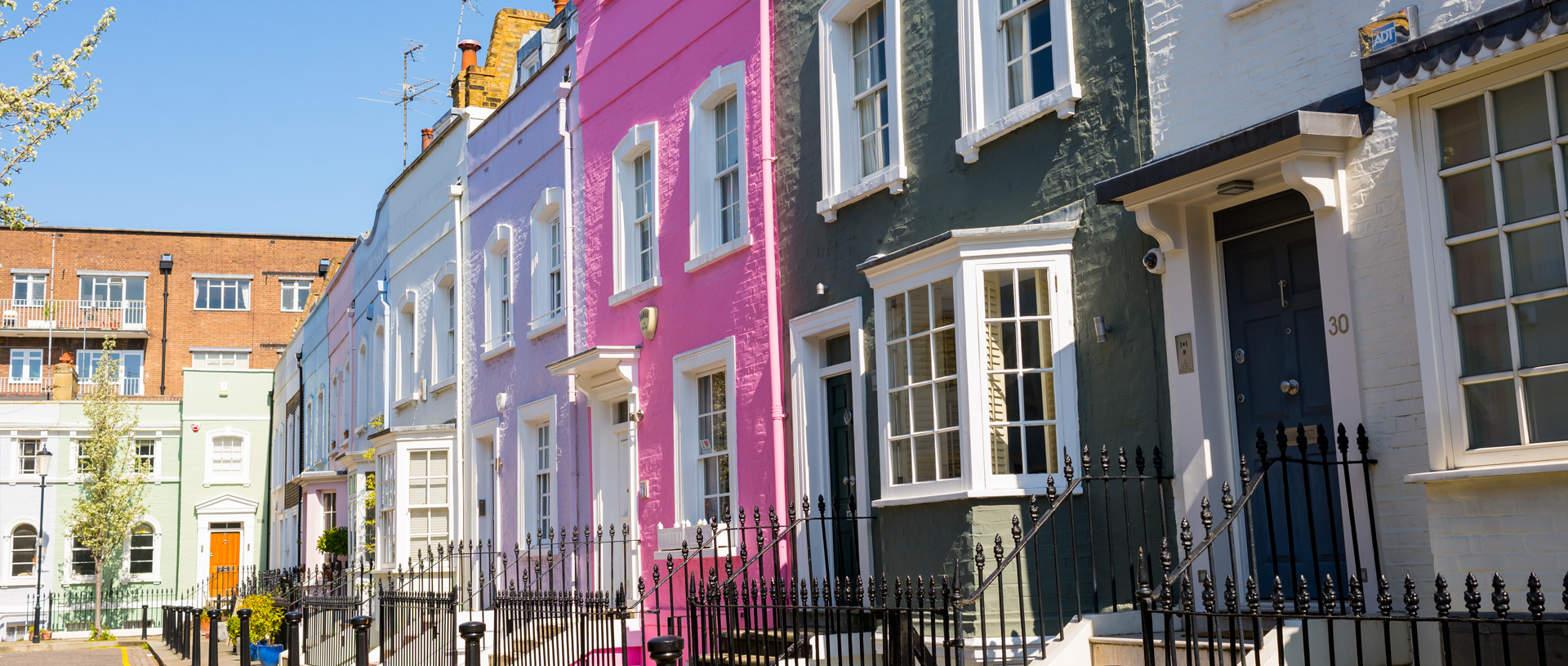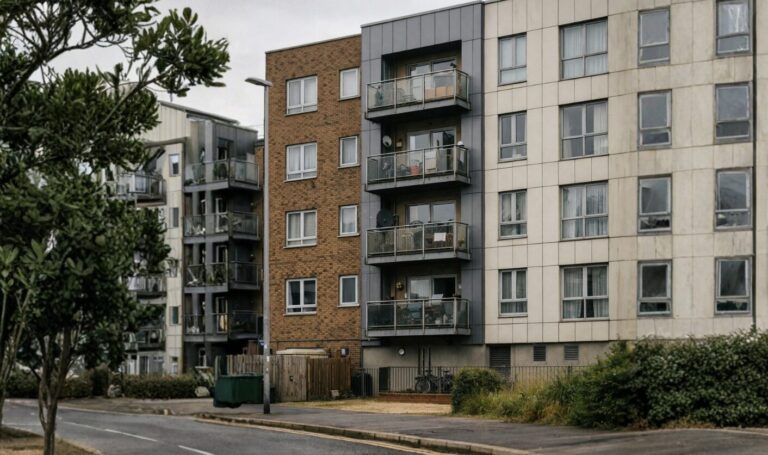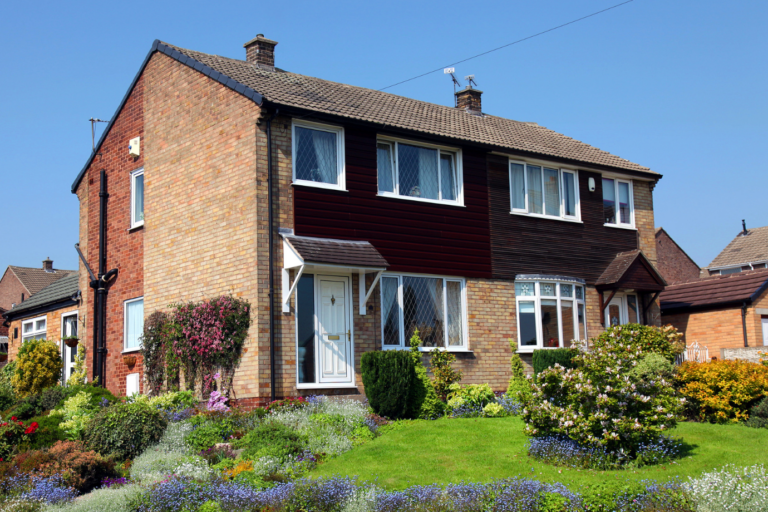Buying a property for investment is a big decision and not one to be undertaken lightly or without research and advice. When faced with the decision between property types, such as a house or a flat, there can be great advantages and disadvantages to each. In this article, we have presented some of the main advantages of each property type, with some disadvantages to consider too.
What is the Difference Between a Flat and an Apartment?
In short, not much except the name! Apartment is a word more often used in the USA than the UK but it has started to creep in to UK English. There is arguably a nuance in UK parlance in that “apartment” is being used more to describe newer, more spacious or upmarket flats and so sets them apart as a more luxurious offering. Other than that, there really is no difference between the two in the UK.
What Is the Best Type of Property to Rent Out?
When considering a buy-to-let property, you might be pondering “Should I buy a house or a flat?’. There is no right or wrong answer to house versus flat but, when considering a buy-to-let purchase, the question to pose to yourself should be “Which type of property will deliver on the objectives I’ve set and give me the highest return on my investment?”. Research in the area that you have pinpointed as a good place to offer a property for rental will help you to discover which type of property rents well. Is there a larger pool of young professionals looking for city centre flats or families seeking 2/3-bedroom suburban living? Quite often flats are a better proposal in a city centre where people who want to both work and live near amenities and the nightlife will be. Houses would be better in the outskirts for those who want a quieter lifestyle, have families and don’t mind a commute. Knowing your target market and your local area and what is in short supply, will help you to decide which property type would be best to rent out.
Are Flats Cheaper to Run Than Houses?
Regarding bills and outgoings, the energy costs associated with living in a flat are likely to be lower than those of a house due to the size differences. The less space there is, the more economical it is to heat the property. Similarly, Council Tax for a flat is often lower than that of a house as the fee paid is, in part, determined on size. As flats often cost less than houses to buy, they are likely to have lower mortgage repayments.
In terms of maintenance, for larger flax complexes, anything to do with the structure of the building itself will almost certainly be the responsibility of the freehold owner of the building. If the flat is a house converted into flats, then it is likely you will have a share of the freehold so the maintenance cost for the building will (in part, check your freehold agreement for the specific details) fall on you the owner. As structural repairs tend to be the most expensive home repairs, buying a flat could prevent these expenses coming your way.
Flats do tend to attract extra costs such as ground rent and service charges and these do add to the overall running costs.
In general flats are cheaper to run than houses, but as with all matters relating to property investment, it pays to due your research and the sums!
Buying a House versus Buying a Flat for Investment Purposes
There are many advantages to purchasing each type of property for investment purposes so let’s look at the benefits of each.
- Which grows in Value Faster
The answer to this is “it depends”. Flats are typically cheaper to buy than houses so have more potential to grow in value and flats in vibrant city centres will always be desirable and there will be no shortage of buyers which inevitably pushes prices up. So, buying the right flat, at the right price in the right location will always be profitable and see good value growth. Getting a flat in a city centre that is being re-developed is a great option. Houses also grow in value readily too and suburban areas with space are a real catch for families and will show great value growth too. In essence, choose your property carefully and both flats and houses should give you good growth.
2. Size and an Outdoor Space
Houses: Most houses come with at least some form of outdoor space, even if it’s only a patio area outside, which will appeal to those with children or pets requiring outdoor space to roam. Families usually look for space to live and grow and houses will usually surpass flats in this aspect. With a house, a garage is also a likely benefit, if only for storage.
Flats: Some tenants want the freedom from responsibility for maintaining an outdoor space, instead preferring a communal garden or balcony. Flats are generally easier to keep clean and tidy due to the compact size. Flats are likely to have a designated parking space, but there is usually only one space per flat and not always near the property, a potential downside to those with multiple cars.
3. Leasehold or Freehold Tenure
Houses: Houses tend to be freehold, but not all the time so do check. This means that you own both the land and the building. Whilst this means there are no issues with leases, it does mean that you are responsible for the upkeep and maintenance of the building and land it rests on.
Flats: Flats are mostly leasehold with a freeholder owning the building and communal areas (unless a converted house, then this is likely to be a shared freehold). This does mean that you don’t need to worry about the building infrastructure which is a significant benefit. Leasehold properties are not without potential issues such as escalating service charges and short leases.
4. Expansion and Improvement
Houses: Houses bring with them huge potential for expansion and improvement, such as: converting the loft (planning permission might be required) to create an extra room, adding an extension, converting the garage to add more living space or building a garden room or conservatory. Improvement and extension generally mean an increase in property value. Greater rental income too!
Flats: Flats have limitations when it comes to adding space – unless you own a ground floor flat that has a basement that could be converted. If the flat needs complete modernisation or various upgrades, value can be added but not as much as you’d see with a house.
5. Buy to Let Mortgages
Houses: When borrowing money to pay for a buy to let investment property, many lenders see houses as lower risk compared to flats.
Flats: Some lenders might require a larger Loan to Value (LTV) if you are looking to buy a flat for investment.
Our advice for either option would be to always speak to a mortgage specialist, such as The Mortgage Advice Bureau, if you have any questions or need advice when looking for an investment property.
Buying a Flat vs House
There is no right or wrong answer as to which is better for investment between a house and a flat, as it depends entirely on your budget, your target locations and demographics. Both have huge positives and some downsides, but by choosing wisely to suit your circumstances either option can be a great investment opportunity.
When deciding between property types to buy for investment, it’s best to speak to local property experts, such as our knowledgeable and professional agents at Northwood, to understand what local demand is like. We would love to hear from you!




